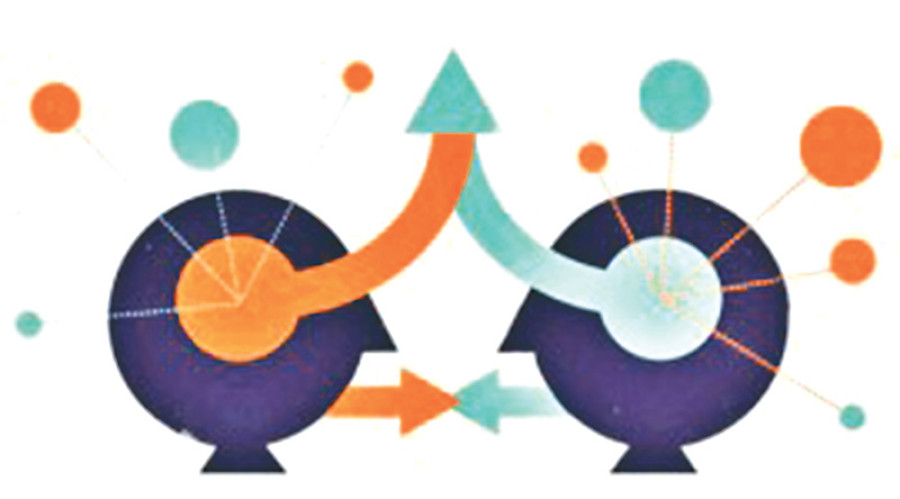Opinion
Good political culture
These days, people are constantly questioning the performance of Nepal’s political parties—be it in terms of maintaining internal cohesion or having enough collaborative efforts with other parties to work towards common national interests.
Jaya Jung Mahat
These days, people are constantly questioning the performance of Nepal’s political parties—be it in terms of maintaining internal cohesion or having enough collaborative efforts with other parties to work towards common national interests. While common Nepalis exhibit this trend in relation to the overall performance of Nepali political parties, cadres affiliated with different parties tend to defend their positions and make quick comments against other parties and their policies.
Need to evolve
I have interacted with some of Nepal’s leading politicians from both old and new parties, and only a handful of them have both impressed and instilled faith in me through their work and vision. While I don’t believe that our current politicians are totally abysmal, I believe that those with sound vision for the country are obscured and divided by individual and political ideologies.
Nepal’s major political parties have undergone numerous divisions and reunions, resulting in the constant creation and absorption of different factions, and providing an often ignored explanation for the country’s dire political conditions. Moreover, we can see how the intensifying frustration of common Nepalis towards the failure of old parties resulted in the rise of new political parties in the post-2006 period. If this trend continues, I do not see the formation of a better political system in Nepal. In the absence of a stable political system, I also cannot expect Nepal to establish balanced diplomatic ties with our immediate neighbours and with other nations across the globe.
My experience in over two dozen countries has led me to believe that, in conjunction with guiding political ideologies, all parties should also incorporate three key principles—political compromise, constructive criticism and innovative protests—into their political agenda to better organise themselves and meet citizens’ expectations. These principles are missing from the ideologies and actions of Nepal’s political parties.
Key principles
Forming a new political group is not a novel practice in a democratic country like Nepal. That’s why Nepal has countless political parties, of which over two dozens have at least one member in Parliament. If the figures are analysed according to the existing number of districts and zones in Nepal, about two registered parties can be allocated to each district and two parties represented in Parliament can be allocated to each zone. I have found no evidence of countries and communities flourishing as a result of having a large numbers of parties. Personally, I think this practice overcrowds the political scene and harms parties by creating confusion and division among voters. Political compromise among leaders and cadres of parties with similar ideologies and agenda could help avoid electoral losses. By coming to a compromise, individual parties would be able to prevent potential electoral losses and strengthen their collective voice to advocate common agendas.
Identifying problems in individuals or in political institutions is easy, but the real challenge lies in developing an intervention strategy that can make leaders and parties realise mistakes and correct them. I believe that if individuals enter into politics with the assumption that all others in the system are corrupt and non-functioning, these new entrants will neither give positive work due praise nor accept constructive criticism; they would only promote practices of blame game. During my travels to Switzerland and Japan, I witnessed the respectful way local politicians talk about their opposition and the overall impact this practice has on politics at local, national and global levels. I believe that parties in Nepal could employ these principles of respect in political activities, thus building a harmonious relationship with other parties and with the public.
With a large number of political parties in a country, the chances of disagreements are higher. This could result in frequent protests. This has been the case in Nepal. Though the ways of staging protests are changing over time, the current practice of disrupting public life by closing roads and markets, vandalising vehicles or burning tyres still persists in Nepal. Instead of inflicting damage, parties in Nepal should learn to use innovative and non-violent ways to express their dissimilarities; they should not compromise the country’s basic service sectors like education, healthcare, industries and airports. If used properly, effective protest techniques could help parties rally against disagreeable policies and actions presented by their opposition. They could also win public support through the same efforts, and build and maintain a good political culture in the country.
Nepal has seen a substantial growth of political parties in the last decade. Those that fail to recognise the citizens’ demands of time and dignity, and fail to accordingly adjust their ideologies, principles and actions could put the country’s future at great risk.
Mahat is a public policy researcher




 21.24°C Kathmandu
21.24°C Kathmandu










